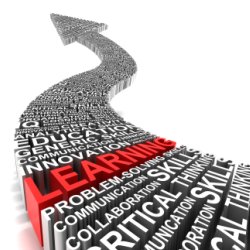The Impact of Feelings on Decision Making: An In-Depth Analysis
In our fast-paced world, the ability to make wise decisions is more crucial than ever. Whether in one's personal lives or in a work setting, the choices we make have a deep impact on our outcomes. Yet, the process of decision-making can often feel daunting, especially when emotions come into play. Grasping the complex relationship between our emotions and the choices we make can unlock new levels of insight and effectiveness in your decision-making skills.
As we dive deep into the psychology behind decision-making, we will explore different techniques that can enhance our ability to make informed choices. From mastering the art of smart decision-making to recognizing how emotional intelligence influences into the processes, this article will provide insights into overcoming common challenges such as decision fatigue and paralysis by analysis. By recognizing the role of intuition and employing proven frameworks, you can enhance not only your own decision-making but also affect those around you. Join us as we dissect the complexities of emotions and how they impact our decisions in both routine scenarios and high-stakes scenarios.
Methods for Enhanced Decision-Making
To boost decision making skills, one effective technique is the use of decision making frameworks. These systematic approaches help individuals break down complicated choices into achievable components. By recognizing criteria and evaluating options against these standards, decision-makers can clarify their thinking and stay clear of being overwhelmed by the nuances of each choice. This methodical method not only encourages clarity but also boosts confidence in the final decision.
Another key technique is to harness the potential of reflection. In a high-speed world, the skill to take a step back and take a little time to consider can lead to more thoughtful choices. Pausing allows for a thorough consideration of options, possible outcomes, and affective responses. This thoughtful approach to decision-making can significantly improve the quality of judgments, especially in stressful situations.
Finally, building emotional intelligence is essential for better decision making. Understanding one's own emotional state, as well as the feelings of others, can provide valuable insights into how affects influence choices. By acknowledging emotional stimuli and biases, individuals can distinguish rational thinking from emotional responses, leading to more balanced decisions. Building this capability not only helps in personal decision-making but also enhances interactions in group settings, facilitating more successful consensus-building.
A Science of Decision-Making
Comprehending the mindset behind decision-making reveals the complicated interaction between feelings and rationality. Feelings significantly influence our choices, frequently acting as the primary drivers of our decisions. For illustration, anxiety can lead to evasion behaviors, while joy can encourage taking risks. Understanding these emotional cues can help individuals navigate their choices more successfully, allowing them to become more conscious of how feelings can obscure judgment and lead to rash choices.
Additionally, cognitive biases play a crucial role in shaping how we make decisions. Biases such as bias of confirmation, where one prefers information that aligns with preexisting beliefs, or the anchoring effect, where early information unfairly impacts our final decision, emphasize the mental shortcuts our brains often take. By acknowledging these mental influences, people can work to lessen their impact, leading to more knowledgeable and logical choices.
Awareness and EQ are essential components in developing decision-making skills. By practicing mindfulness, people can cultivate enhanced awareness of their feelings and thinking, which adds to sharper thinking. Being emotionally intelligent allows for greater recognition and control of both one's own emotions and those of the people around them, which is particularly beneficial in collaborative contexts. Developing these skills can lead to more successful decision-making and enhanced overall judgment.
Strategies for Successful Choices
Successful decision making begins with precisely outlining the problem at hand. Spending time to grasp the specific issue, its context, and the desired goal is crucial. This clarity helps in determining preferences and establishing standards for evaluating options. By breaking down the choice into manageable segments parts, decision-makers can concentrate on relevant factors, making it easier to navigate complex situations and steer clear of hasty decisions.
Another vital aspect is to embrace a equitable approach that incorporates both analytical thinking and intuition. While data and logical reasoning provide a reliable foundation, instincts and past encounters often lead us in ways we may not entirely recognize. Leveraging both intuition and logic can lead to more comprehensive assessments and ultimately improved decisions. Additionally, using decision-making frameworks can aid in structuring thoughts and ensuring that all relevant perspectives are evaluated.

Ultimately, reflection plays a crucial role in enhancing decision-making abilities over time. Assessing both effective and unsuccessful decisions allows people to gain insights from their encounters. Practicing self-awareness can enhance self-awareness, helping to manage emotions that may cloud judgment. By fostering Click here! of introspection, decision-makers can enhance their decision-making processes and develop greater assurance, leading to regularly optimal choices in various aspects of life.